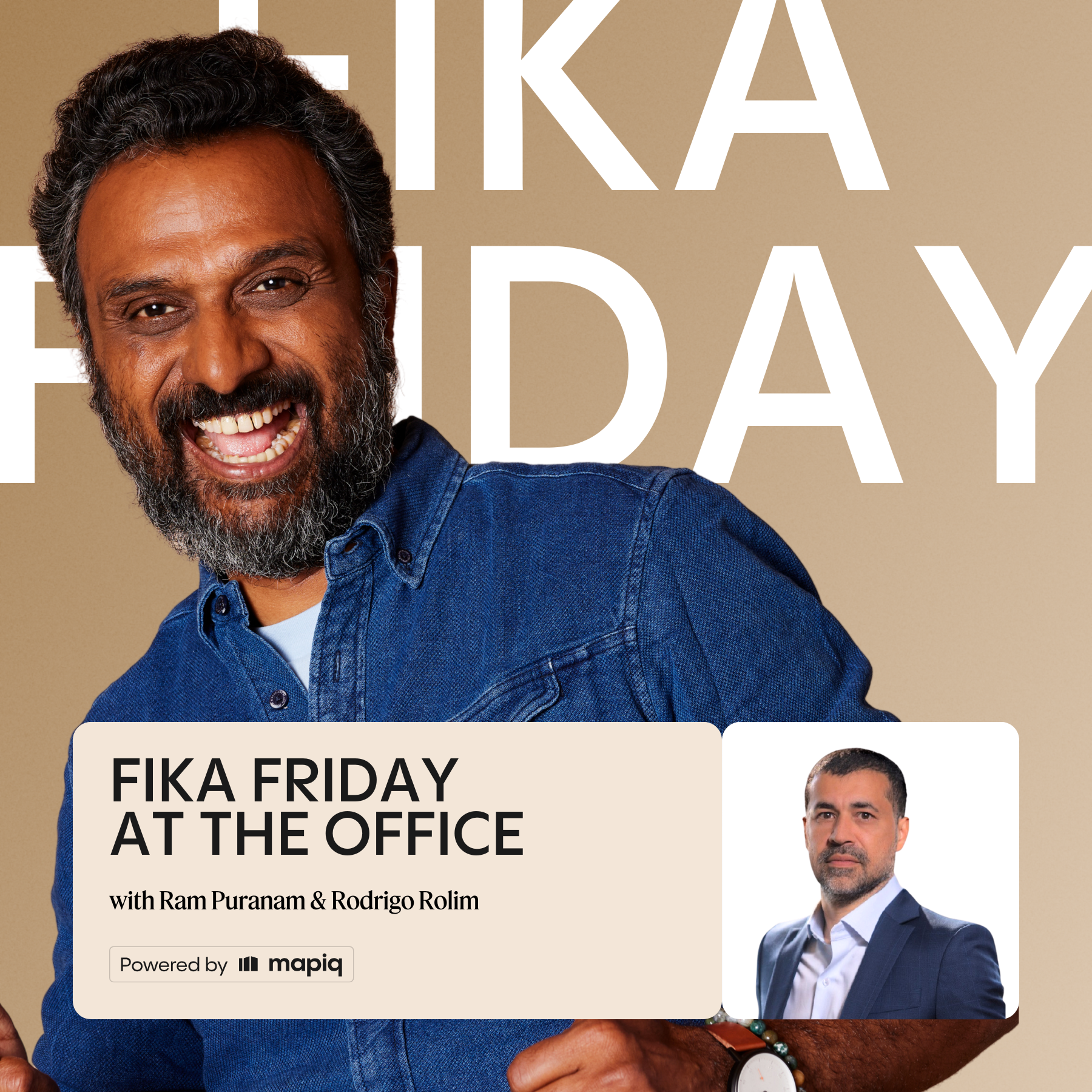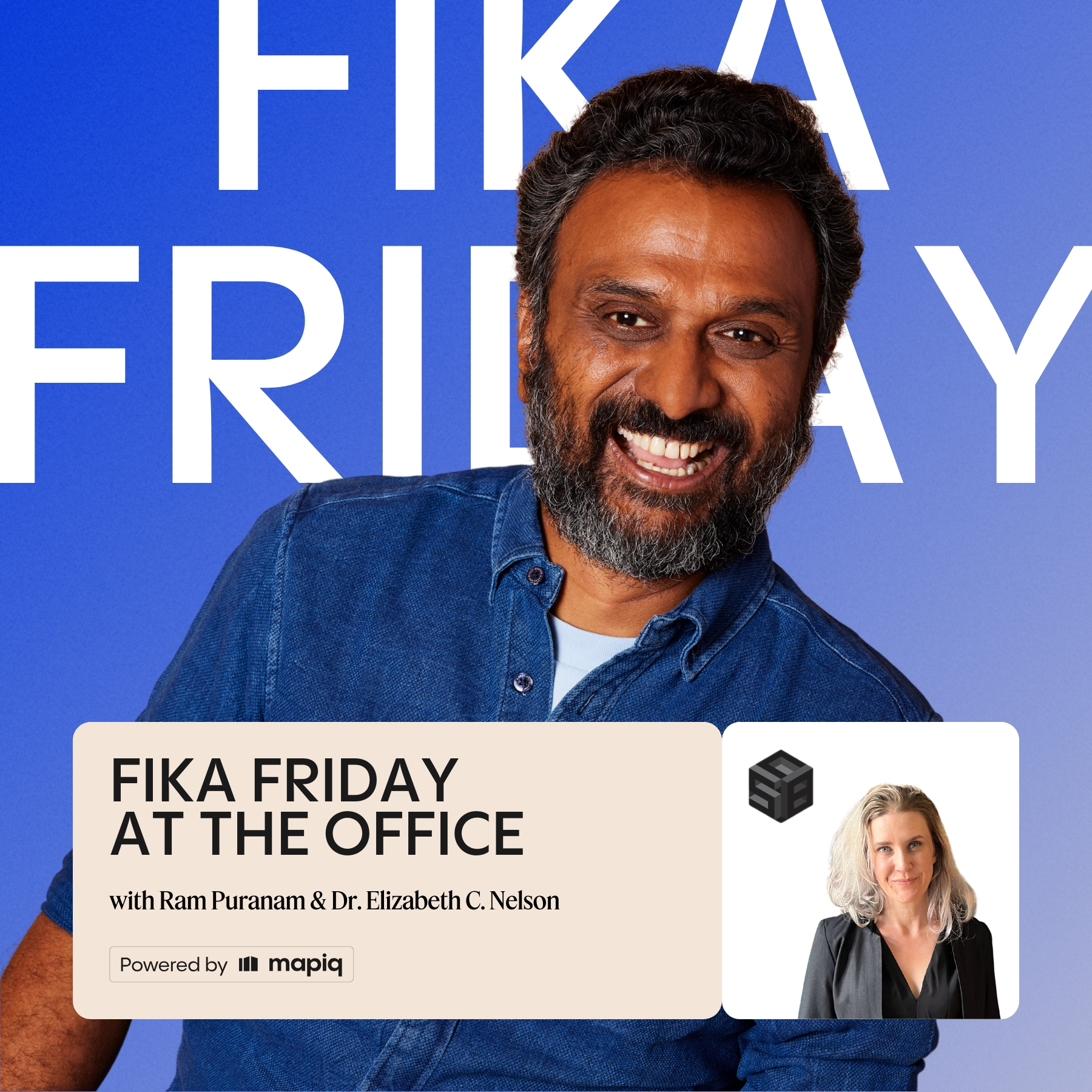
When you hear Henrik Jarleskog talk about work, it quickly becomes clear - he’s thinking about people, purpose, and performance. As Head of Future of Work for Europe at Sodexo, Henrik sits at the intersection of culture and strategy, helping one of the world’s largest companies reimagine what work should feel like.
In this episode of Fika Friday at the Office, Henrik joined me for a conversation that ranged from AI and hybrid work to cookies and coffee. True to the spirit of fika, a Swedish ritual of slowing down to connect, we explored how small cultural moments can shape big workplace outcomes.
"I’m a strong believer in the Fika culture… it strengthens both the weak and strong ties you have with the people around you."
From Hockey to Hybrid: A Personal Journey
Henrik’s story begins far from corporate boardrooms. After struggling in school, it wasn’t until a hockey injury forced him to slow down that he discovered how he actually learned best. That moment launched a career that would eventually take him across the Nordics and into leadership roles in strategy, consulting, and now future of work design.
His lived experience makes his perspective grounded and real. Whether he’s reflecting on the difference between Swedish consensus and Danish directness, or on the need for more curiosity in leadership, Henrik approaches the workplace as something deeply human.
The Tension in Today’s Workforce
Henrik pointed to a unique paradox unfolding in the world of work: tech companies are laying off tens of thousands, while simultaneously hiring just as many.
“It’s like a gold rush,” he said. “You have to get rid of people, but hire new ones, because there are new skills needed.”
That reality reflects a larger truth: many of today’s job roles are already obsolete. At the same time, entirely new capabilities are being built into the fabric of how work gets done, often driven by AI.
And through it all, people want flexibility, connection, and a sense of purpose. Balancing those forces isn’t easy, but Henrik believes the companies that do it best will outperform the rest.
Hybrid Work Is Winning
Despite the noise around return-to-office mandates, Henrik’s research tells a different story. An analysis of the top-performing Fortune 500 companies in Europe showed a clear pattern: the highest performers were all hybrid.
“In October 2024, 86% of them were hybrid, 10% were fully flexible, and only 4% required full-time presence,” he said.
The takeaway? The office isn’t dead, but rigid workplace models might be. The future lies in flexibility, and more specifically, in team-based flexibility. Rather than setting top-down policies, Henrik believes that work agreements should be co-created at the team level.
Culture Drives Performance
Henrik made one bold prediction that stood out: by 2025, flexible work will become a performance driver, not just an employee benefit. And it all comes down to trust.
When employees feel trusted, they thrive. And when they thrive, they perform. Henrik sees trust as the most important driver of business outcomes today.
That philosophy carries through in everything from how teams structure their days to how workplaces are designed. It’s why junior employees need more in-person time to build relationships. It’s why offices need to create a “vibe” that makes people want to be there. And it’s why strategies that connect back to company purpose resonate more deeply.
“If people are engaged, they will do better work. And that starts with trust.”
The Friction of Synchronous Work
Henrik also raised a frustration we hear more and more – the synchronous work. In a world that values flexibility, being tied to nonstop back-to-back meetings can feel like a step backward.
“It’s one of the biggest frustration drivers right now,” he noted. “People are in the same digital meetings, nine to five, every day.”
His advice? Give teams the autonomy to structure their time. Trust them to decide when real-time collaboration is needed, and when focused, async work gets better results.
Final Thoughts: Designing for Connection and Performance
Henrik Jarleskog brings clarity to a complex moment in work culture. From his personal journey to his leadership at Sodexo, his insights are both grounded and forward-thinking.
The future of work is about designing environments: physical, digital, and cultural, that foster trust, support performance, and make space for human connection.
As Henrik said: “Meeting your colleagues is still the number one driver of workplace happiness.” That simple truth, paired with flexible systems and thoughtful strategy, might just be the key to thriving in the years ahead.
Listen to the full episode with Henrik Jarleskog to explore how culture, trust, and flexibility are reshaping workplace performance. Catch Fika Friday at the Office wherever you get your podcasts.




